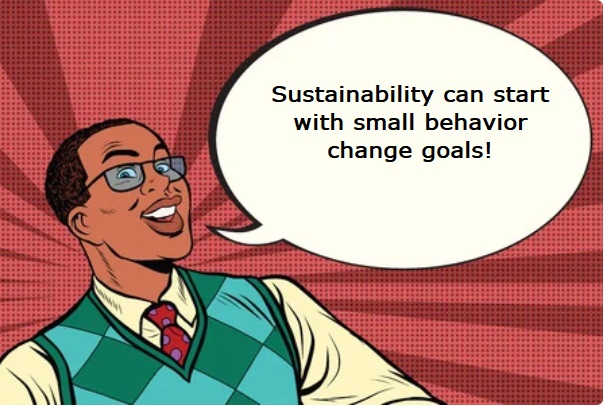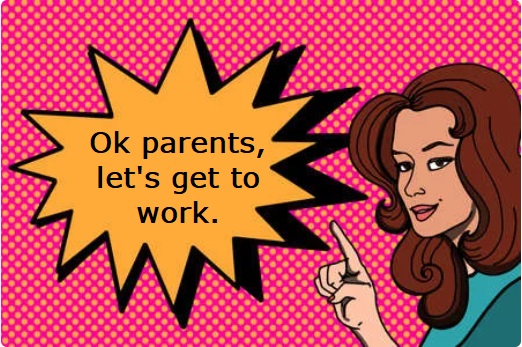
Careers in ABA: Exploring Your Options
Are there other career fields for behavior analysts? Sometimes when you start to daydream about all the amazing things that are possible with ABA, you start wondering what jobs have gone beyond the most commonly heard about ABA career settings. You may have heard about BCBAs, RBTs, or BCaBAs working in schools, as in-home providers, or as part of a supportive day program to name a few. But, are there other ABA careers out there that you don’t know about yet? Right now, there are lots of incredible ways that careers in behavior therapy provide extremely meaningful support for people with neurodiversity. But did you know that a behavior analyst’s unique skillsets can give the world even more solutions in other uncharted territories?!
The ideas in this month’s blog may surprise, inform, and even entice you to take a closer look at some exciting ways that RBTS, BCaBAs, and BCBAs can use the principles of ABA to make a difference in other fields. What other jobs do you think a behavior analyst could do? We think the sky is the limit…or maybe space ...perhaps deep, deep space?! Read on for more about how far and wide your ABA career could take you.
Choosing The Best ABA Career Path for You, Personally and Professionally
If you have a career in ABA then you probably would agree that learning new things can open us up to rich opportunities, insights, personal development, and more moments of joy. But even the most skilled RBT, BCBA, or BCaBA will experience those less graceful phases of growth that are challenging to get through. Starting a career in a new area might be one of them.
It generally starts like this: You get that feeling…the one where your whole body lights up on the inside because you’ve got an exciting new idea, and it starts to consume you. You’re deeply moved, you’re thrilled in fact, and you want to get started right away so you make phone calls, write letters, draw sketches, and make declarations about how you’re going to bring something beautiful into the world!
And then it happens….the next phase of growth….the one where your inspired moment of genius is more messy and awkward than it is genius, and you realize that you’re definitely going to need some help. No matter how many times we do it, or how many tools ABA has taught us, purpose-driven growth can be a bit….awkward.

Embracing the discomfort of growth can make you feel somewhat silly. But that’s ok!! Ultimately it’s a sign that we’re on the right track.
Leaning into feeling a little less-than-comfortable also happens to be one of the best ways to achieve personal and professional success. Still, how do we confidently navigate career options and keep ourselves moving in a direction we want to go? Education and career relationships take time and significant investments….we want to be smart about this!
You might already be facing the decision to grow and expand your reach–even if you’re in the beginning of your career, or have just graduated as a BCBA, BCaBA, or Registered Behavior Technician. A lot of people get their start working in behavior therapy for people with developmental disabilities. While it’s an enjoyable career option and also a rewarding one, you may also be thinking:
‘Are there other jobs a behavior analyst can do, or applications in ABA besides education or behavior therapy that I could get involved with?’
It can be tough to face these ideas or desires for change when you’re still in the early stages of your career. Maybe you love talking, analyzing, applying principles, or writing about ABA, but want to take the work in a different (and new) direction…so you can grow professionally, but also as a human being. But what does the road of change look like? What’s even possible?
Knowing that we have options, and knowing specifically what some of those options are, can help us feel more confident in choosing the best fit for our personal and professional journey. When we shine a light on the landscape in front of us, we can make clear decisions that make positive ripples into the near and far-reaching future. Who knows, your thought journey could end with a call from a new job that makes you feel like…

Let’s Look at Some Career Options Together
Behavior Analysts are well suited to contribute to fields beyond what initially comes to mind. If one of the choices piques your interest, click the bolded titles to read more.

Public Policy Maker
There’s lots of behavior analysts that influence government work. Behavior Analysts could find an extremely rewarding career by creating policy-relevant analysis, generate or design research data and studies. Behavior analysts can help on committees that generate solutions to complex public problems. Policymaking typically springs into action when a large number of people experience a common (and important) problem that needs to be solved. Hey wait a minute, shared problem…socially important? Sounds like a socially valid ABA application opportunity here!
If you’re unsure it’s for you, the best part is that you do not need to be employed by the government. You can start helping with public policy tomorrow through volunteering! Public issues are typically complex and they need people to help in groups like oversight committees or interim study committees. You can bring the behavioral lens to the table to help create recommendations to decision-makers. A good way to get started is to visit your local legislator’s website to view hearings on your areas of interest. Perhaps there is something very near and dear to your heart that you are ready to take on!
Many departments have their own hearing appointments. Attending them can give you a sense of what challenges the local Depts are facing or solutions they are presenting to solve them. From there, you can join city, county, or state committees as a behavior analyst expert. There are lots of ways to contribute your knowledge through modes of written or oral testimony, white papers, issue papers, and more!

Sustainability Intervention Designer
We all have seen or felt it. Issues such as air and water pollution or increasing energy demands place stress on our planet (and our bodies too!) Behavior analysts can use or create interventions to improve our planet's condition. Interventions include targeted feedback, environmental arrangements, group contingencies, and policy/ systems change to increase and improve sustainable practices.
You can check out a special Facebook group called ABA and the Earth to get your networking started. There’s even a Behavior Energy, & Climate Change Conference that you can attend or watch sessions online afterward. There are a wide variety of topics discussed including mental health impacts of climate change, diversification of energy production, transportation, efficiency, and more. Check out their speaker list to get a sense of the topic variety and interests!

Organizational Behavior Consultant
Businesses need help to improve efficiency, services, training, and products. Behavior analysts can enhance work quality and systems through consulting in areas such as performance management, systems analysis, behavior-based safety, consumer behavior, employee health and well-being, pay for performance, training, and leadership/culture.
There’s a fantastic article by Brethower et al., (2021) about the history of OBM as it started from enhancing education, various aspects of the workplace, and even bigger aspects of business & the economy. They discuss that behavior analysts contribute on a daily basis by researching and creating educated ABA answers to real-world business questions. If you’re ready to think on a bigger scale, this job could be for you. The questions a behavior analyst helps to answer may be more system-wide, depending on how you consult.
For example, questions could be about marketing campaigns, how pricing could affect demand, how to increase work efficiency or product quality. Behavior analysts are also really good at pinpointing & teaching helpful employee skills through task analysis. For example, they can identify what behaviors the best-performing salespeople do that the others don’t. Then, they can suggest or develop programs to help teach the other employees to perform those sales-producing behaviors. The opportunities are endless and we can use our analytical skill sets to solve all kinds of different problems. Training, analysis, and learning happens in all kinds of different business activities!!

Wellness (Diet/Exercise) Coach
Let’s face it, everyone has a right to eat too many donuts and take a nap. But sometimes our habits can get in the way of our health goals. There’s all kinds of things you can do when applying ABA to wellness activities: from helping people choose healthier foods to making exercise a part of their daily recharge.
What about stopping unhealthy habits? Glad you asked. Check out our CEU regarding applications of ABA into fitness. You’ll see some incredible applications of ABA into reducing behaviors like smoking. There’s also some positive behavior shaping & chaining for marathons and many more interesting examples. Perhaps you’ll find one of your interests mentioned too!
Speaking of interests, If you want to connect to other like-minded BCBAs in fitness, there’s also a special interest group. They explore nutrition coaching, health promotion, wellness coaching, lifestyle coaching, personal training, and behavioral health coaching.
Behavior analysts in health fields use the same kinds of strategies you may already use today with your other clients! They apply self-monitoring, stimulus control, behavioral skills training, and contingency management. You may explore some of Skinner’s private event concepts when you help people with regulating their self-talk. Some self-talk can interfere with people reaching their health or fitness goals, and you can teach some replacements!
You can get some interesting cross-professional collaboration too. Behavior analysts may work alongside other healthcare professionals, like registered dietitians or even coach people outside of formal healthcare systems. Health coaching with ABA may include increasing healthy habits such as incorporating more steps into the day, eating more vegetables, or staying well hydrated. These are all deceptively simple but nevertheless extremely useful and targeted ways to help people live their best life. Building healthy habits is a lifelong journey for all of us and how great would it be to teach people about ABA along their way?!
Still looking for more options? Dr. Amanda Kelly (AKA BehaviorBabe) is a great resource for those who are looking to explore ABA career options. This talk covers loads of interesting ideas that just might surprise you.

Birthing Assistant
Did you know that giving birth without additional medical intervention is a goal for many expectant mothers? One study found that mothers who had the ability to move around during labor had better chances of giving birth without additional medical interventions such as episiotomies. A woman’s ability to sit or stand upright during the first stage of labor also reduced the probability of having an epidural. Behavior Analysts like Dr. Ashley Greenwald has helped prompt women to use strategies to cope with labor and assist in having a natural birth.
All career options for behavior analysts are important and they each make a significant, positive impact in the lives of others. The value that ABA and behavior therapy brings to the field of education is especially profound. However, there are new applications of ABA that are growing each year and one of them could be a good fit for your unique mindset, lifestyle, skills, and passions. It may be awkward to let a new idea carry you through change, but if you’re inspired to make a difference, go for it!
Are there other career applications of ABA that we missed or you’d like to hear more about? We love hearing from you and we consider what you need more of every time we create new content. Click here to contact us with your thoughts, questions, and reflections. We’re listening.
